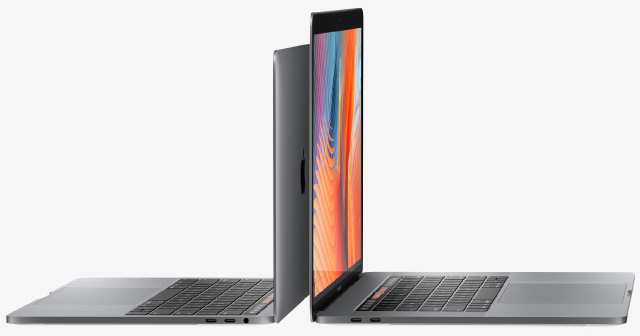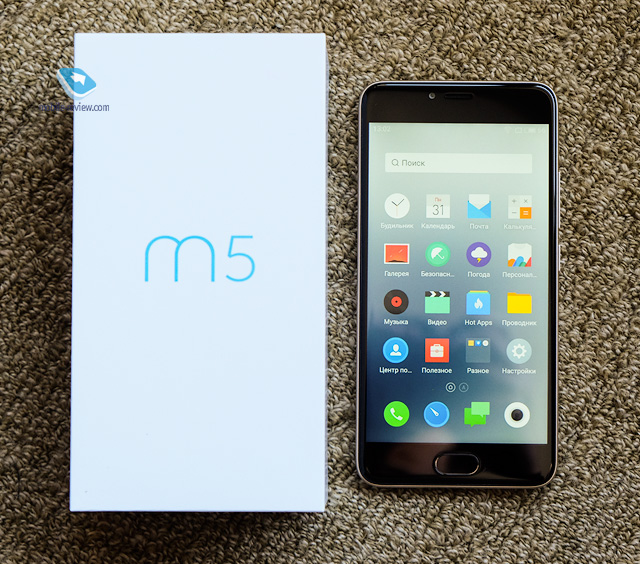No company can afford to stand still, it needs to constantly develop and try to move on. No matter how famous she is, no matter what credit of trust she receives from users, she will not be allowed to live long on past merits. That's just 'development' – a loose concept and in each company it is understood a little differently.
Apple and newer MacBooks
Sooner or later, for every large company there comes a moment when everything they could have squeezed out of the current concept of its main product (device, application, operating system, etc.). There is simply no room left for some radical improvements, everything works great anyway and completely satisfies users. But you still need to come up with something new, because the goal of any company is not at all to achieve a mythical ideal, but to make a profit and increase sales.
The best option is when the company manages to find some new promising direction for itself and switch to it. Then there is a chance that the original product will be left alone, and experiments will be put on something else. Otherwise, the company has only two options – either abandon the proven and working concept and start from scratch, or try to 'improve' the current solution with dubious and unnecessary 'innovations'. A classic example is the story with Windows 8. Instead of further improving the popular and very successful Windows 7 in Microsoft, they decided to reinvent the bicycle, completely rethinking the OS concept. It was a serious risk, but the company had nowhere to go. From year to year it is impossible to sell only one “seven”, it was necessary to show something new. And then this 'something' can be systematically developed further, in fact showing how Windows 10 is better Windows 8 and how many interesting things await us in Windows 11 .
I was completely calm about the fate of the MacBook – for Apple this is no longer a key product, to put everything on zero, risk reputation and try to fix something that did not break anyway, there was no point in the company. Unlike iPhone, which should at any cost be the coolest and most innovative smartphone of the year, the MacBook can afford to be just a good laptop.

Indeed, no shocks occurred. The familiar desktop hasn't been replaced with live tiles, the keyboard hasn't been transformed into a giant touchpad, battery life hasn't been sacrificed to some super thin case design. But laptops Apple could not get out of dubious innovations either. One can argue for a long time about what the sacred meaning of these or those changes is, why such a set of connectors was chosen, and whether it is so difficult to carry a pair of adapters with you. Especially when you do not plan to buy this laptop for yourself, but simply conduct an abstract discussion on an equally abstract topic. But from a practical point of view, I see no reasonable reason for myself to change the MacBook Pro 2013 for any of the new products presented. At least for my use case, almost every innovation in new models is, if not the biggest, but still a clear drawback. Starting from a set of connectors and ending with replacing a number of physical keys with touch keys. This not only will not give any advantages, but, on the contrary, will further complicate life. Stylish, trendy, and progressive, but as a workhorse, the new MacBooks are so far less comfortable than the old ones. Anyway, for me.

Since the announcement of iPad Pro, the company itself has come up with an excellent excuse for all occasions – this is a solution for professionals. Is there something unclear or uncomfortable for you? Well, that's not surprising. You are simply not a professional. But this is nothing, over time and you will understand how the company's engineers were right.
Here is the time to remember the famous anecdote:
– Experts say that people have started to live better.
– Indeed? And the people themselves claim that they do not feel anything like this.
– No wonder, because they are not specialists!
What developers mean by the concept of 'professional' becomes less and less obvious with each announcement. Programmers and photographers seem to no longer belong to such Professionals. The former will not be particularly happy with the touch panel instead of the top row of keys and an adapter for connection iPhone, the latter with slight bewilderment will react to the idea of removing the card reader from the laptop.
Link to news
Meizu and new M5
The other day a smartphone Meizu M5 was presented. Already now we can say that the smartphone came out well and will sell well both in China and abroad. First of all, for the reason that there are no cardinal changes compared to last year's model.

With all due respect to Meizu, the presentation could hardly be called bright and interesting. On the one hand, this is quite expected. On the other hand, it's still a little sad. The company's lineup is growing every year, the positioning of the models is becoming more difficult, and the names are more confusing. For example, in this case, the Chinese for some reason decided to skip one serial number, presenting M5 immediately after M3. It seems that these are trifles on which it is foolish to focus attention. But it is from them that the general impression of the brand is formed, and over time they may well lead the company somewhere in the wrong place.
Many years ago, at the height of its form, the company HTC decided that it could afford to expand its lineup. Initially HTC Sensation turned from a flagship into a whole line of devices with letter indices, after some time the same fate befell HTC Desire. And not to say that the devices were bad. Not unambiguous – yes, but it was just in the spirit HTC and did not surprise anyone. In the end, the company was loved not so much for its uncompromising technical characteristics as for its bright and recognizable smartphone models, which, thanks to HTC Sense, had a 'human face'.
It didn't end very well for the company. Users got confused in smartphones of the same type, no longer understand how they differ from each other, which model is better and which is worse. Even those who were ready to buy a new smartphone HTC without hesitation were forced to delve into the technical details and figure out what this or that device is. And often to be convinced that the choice is not so straightforward and for the same money you can find a lot of interesting alternatives from competitors.
I would like to believe that Meizu it will be possible to maintain a balance between quality and quantity, not to lose face and not turn bright and interesting devices into a faceless series of clones.
Link to news
Microsoft and virtual reality
Having suffered a fiasco with mobile devices, Microsoft focused on virtual and augmented reality. If smartphones on Windowos Phone were created from the principle 'I blinded you out of what was,' then the company has a fundamentally different approach here. MS spares neither time nor resources on research and development of new solutions and is clearly going to fight for this market in earnest.
From time to time, the company demonstrates its achievements to others, often faced with an outright misunderstanding. Users do not expect to see bare technology, but a finished product, and there is nothing like it yet. Most of the comments on this kind of news are 'what-this-scary-thing' and 'who-really-needs-this'.
Now it is difficult to judge whether this or that technology will be needed and whether they will be able to bring it to mind. Most of the research will end in nothing, the overwhelming majority of patents will be shelved, and a bunch of promising ideas will never go into mass production. This is completely normal, no one can hit the bull's-eye on the first try. Therefore, looking at this or that prototype, one has to turn on the imagination, trying to guess how this technology can be used in the future.
One recent example is NormalTouch and TextTouch technologies, which allow you to 'touch' a virtual object. The controller, which the user holds in his hand, has a special movable platform that will lightly press on the pad of the finger at the moment when the hand touches the virtual object. This will allow you to feel the size, texture and density of the object by touch, which will make working in virtual reality much more comfortable.
In their current form, prototypes look frankly unpresentable, but no one says that commercial devices will be exactly like that. Who knows, perhaps sooner or later Microsoft it will be possible to turn such a joystick into a kind of analog of a glove, which could well become a new kind of controller. After all, mice and joysticks are great, but virtual reality needs something else.
Link to news
